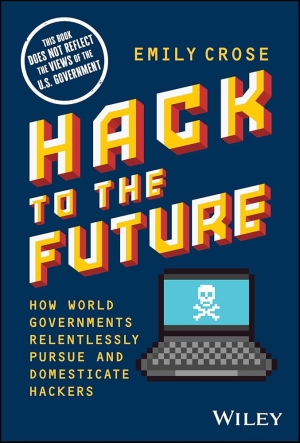Top 10 Cybersecurity Awareness Tips
In recognition of Cybersecurity Awareness Month, we spoke with Emily Crose, a former U.S. Intelligence officer with over a decade of experience in cybersecurity. Here are the ten practical cybersecurity tips according to Emily we can all use in our day-to-day lives.
- Assess your own personal risk. If you aren't handling sensitive information that would be valuable to a government, or a corporate competitor, you're unlikely to be a high-priority target for intelligence collection. This means that the approach to your own personal security posture doesn't need to be as paranoid as a spy may have to be.
- Use Multi-Factor Authentication (MFA). Even if you aren't a high-priority target, always use MFA as a baseline for any service that requires logging in.
- Keep a backup of MFA keys. When using MFA, it will often prompt you to store a backup copy of keys you can use to regain access to your services if you lose access to one of your trusted devices. Keep these keys in a safe and secure location, such as an encrypted backup or a saved cloud service.
- Use password managers. Not only will a password manager make logins easier for you, but they will also make your passwords more secure in their formation. It is a better option than having to remember dozens of high-complexity passwords, or committing to the dreaded practice of password reuse.
- Never reuse passwords! Reusing passwords is a risky practice. A diversity of high complexity passwords ensures that any attacker who may be trying to gain access to your accounts won't have a 'master key' to all of them, which will make compromising your accounts much harder for them.
- Encrypted messages aren't just for spies anymore! Messaging apps offer a higher level of message transportation security are readily available and free for personal use. Make sure to use a message application that offers end-to-end encryption for the best privacy.
- Set up email sorting. Is sorting your email a security practice? It could be! Spear phishing is a targeted cyberattack where hackers craft convincing fake emails using detailed research. Using email is a popular and effective method attackers use to gain a foothold on their victims. By simply sorting your emails from internal and external senders, you reduce the risk of clicking on malicious links and improve your security awareness.
- Share a challenge and a response word with your family. As AI voice replication, and text generation improve the appearance of legitimacy that scammers use to trick their victims, it's a good idea to fall back on older methods of identity verification. Share a challenge and response word with your most trusted relatives that can be used to verify their identity if you are called in desperation by someone who "sounds" like a loved one.
- Maintain regular backups. Ransomware, a type of malware that encrypts a victim's files until a ransom is paid, continues to be a major issue facing individuals and companies worldwide. Maintaining regular backups should be considered standard practice for everyone.
- Regularly restart your mobile devices. Mobile device security has been a major topic in recent months, and will . It's a good idea for individuals who have an elevated risk profile to regularly restart their mobile devices as a measure to remove malicious software that may be running in the device's memory.
Check out Emily's latest book "Hack to the Future", which explores the relationship between hacker culture and U.S. government policies.

About the author
Emily Crose
Emily Crose is a former US Intelligence officer (CIA, NSA and INSCOM) with over a decade of experience in the field of cyber security. A renowned expert in both offensive and defensive cyber security and currently specializes in industrial control system security. Crose is the author of "Hack to the Future" and co-founded Hacking History, a project examining how the U.S. government interacts with the hacking community.
Learn More

